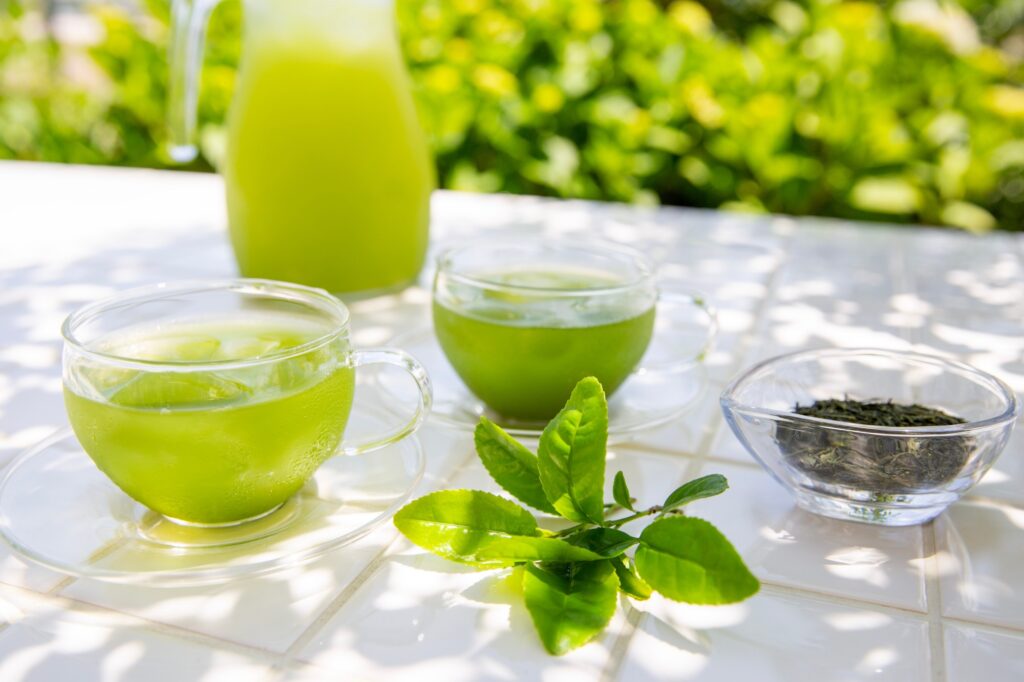
Green tea has been a beloved beverage for centuries, cherished for its refreshing taste and remarkable health benefits. Originating from the Camellia sinensis plant, green tea is a unique type of tea that undergoes minimal processing, preserving its natural compounds and antioxidants. This ancient drink has captivated the attention of health-conscious individuals worldwide, and for good reason.
The History of Green Tea
The history of green tea can be traced back to ancient China, where it was revered as a symbol of health, longevity, and spiritual enlightenment. For centuries, green tea has been an integral part of Chinese culture, with its consumption deeply rooted in traditional practices and rituals. Over time, the art of green tea cultivation and preparation has been refined, leading to the emergence of diverse varieties and unique flavor profiles.
Components of Green Tea
Green tea is renowned for its rich array of beneficial compounds, including polyphenols, catechins, and L-theanine. These powerful antioxidants and phytochemicals work synergistically to provide a wide range of health benefits. The most notable catechin found in green tea is epigallocatechin gallate (EGCG), which has been extensively studied for its potent anti-inflammatory and cancer-fighting properties.
Health Benefits of Green Tea
- Green Tea and Weight Loss
- Green tea has been shown to boost metabolism and enhance fat burning, making it a valuable tool in weight management.
- The catechins in green tea, particularly EGCG, have been found to increase energy expenditure and fat oxidation, leading to effective weight loss.
- Studies have also suggested that green tea may help reduce abdominal fat and waist circumference, further contributing to overall weight loss.
- Green Tea and Heart Health
- The antioxidants in green tea have been linked to improved cardiovascular health, including reduced risk of heart disease and stroke.
- Green tea has been found to lower LDL (bad) cholesterol levels, while increasing HDL (good) cholesterol, thereby improving the overall cholesterol profile.
- The anti-inflammatory properties of green tea may also help maintain healthy blood pressure levels and reduce the risk of atherosclerosis.
- Green Tea and Cancer Prevention
- The powerful antioxidants in green tea, particularly EGCG, have been extensively studied for their potential to inhibit the growth and spread of cancer cells.
- Research has suggested that green tea consumption may reduce the risk of various types of cancer, including breast, prostate, and colorectal cancer.
- The anti-carcinogenic effects of green tea are attributed to its ability to neutralize free radicals, modulate gene expression, and induce apoptosis (programmed cell death) in cancer cells.
- Green Tea and Brain Function
- The unique combination of caffeine and L-theanine in green tea has been shown to enhance cognitive function and brain health.
- Green tea consumption has been linked to improved memory, attention, and focus, as well as a reduced risk of cognitive decline and neurodegenerative diseases, such as Alzheimer’s and Parkinson’s.
- The neuroprotective effects of green tea are believed to be due to its ability to reduce inflammation, protect against oxidative stress, and promote the growth of new brain cells.
- Green Tea and Skin Health
- The antioxidants in green tea, particularly EGCG, have been found to have beneficial effects on skin health and appearance.
- Green tea has been shown to protect the skin from the damaging effects of UV radiation, reducing the risk of sun-induced skin damage and premature aging.
- The anti-inflammatory properties of green tea may also help alleviate skin conditions, such as acne, eczema, and psoriasis, by reducing inflammation and promoting healing.
Matcha Green Tea and Its Unique Benefits
Matcha green tea is a powdered form of green tea that has gained significant popularity in recent years. Matcha is made by grinding the entire green tea leaf into a fine powder, which is then whisked into hot water to create a vibrant, nutrient-dense beverage. Compared to traditional green tea, matcha offers several unique benefits:
- Concentrated Antioxidants: Matcha contains a higher concentration of antioxidants, particularly EGCG, due to the fact that the entire leaf is consumed.
- Improved Nutrient Absorption: The fine powder form of matcha allows for better absorption of its beneficial compounds, including vitamins, minerals, and amino acids.
- Sustained Energy and Focus: The combination of caffeine and L-theanine in matcha provides a gentle, sustained energy boost without the jitters associated with other stimulants.
- Detoxification and Cleansing: Matcha is believed to have a detoxifying effect, helping to flush out toxins and impurities from the body.
How to Incorporate Green Tea into Your Daily Routine
Incorporating green tea into your daily routine is an easy and enjoyable way to harness its numerous health benefits. Here are some tips:
- Drink Green Tea Regularly: Aim to consume 1-3 cups of green tea per day, either hot or iced, to reap the full advantages of its compounds.
- Try Matcha: Incorporate matcha green tea into your daily routine, whether it’s in the form of a latte, smoothie, or as a standalone beverage.
- Use Green Tea in Cooking: Explore recipes that incorporate green tea, such as green tea-infused rice, soups, or baked goods, to further enhance the nutritional value of your meals.
- Take Green Tea Supplements: For those who prefer a more concentrated form of green tea, consider taking high-quality supplements that provide a standardized amount of EGCG and other beneficial compounds.
Precautions and Potential Side Effects of Green Tea
While green tea is generally considered safe for consumption, it’s important to be mindful of a few precautions and potential side effects:
- Caffeine Content: Green tea does contain caffeine, and individuals who are sensitive to caffeine may experience side effects such as jitteriness, anxiety, or insomnia.
- Interactions with Medications: Green tea may interact with certain medications, such as blood thinners, antidepressants, and medications for liver or kidney conditions. It’s essential to consult with a healthcare professional before incorporating green tea into your routine.
- Digestive Issues: Consuming large amounts of green tea may cause digestive discomfort, such as nausea, stomach upset, or diarrhea, in some individuals.
Start your journey to better health by incorporating the remarkable benefits of green tea into your daily routine. Explore our selection of premium green tea and matcha products to experience the power of nature’s elixir. Shop now and unlock the secrets to a healthier, more vibrant life.
Embracing the Power of Nature’s Elixir
Green tea’s remarkable health benefits make it a truly remarkable and versatile beverage. From aiding weight loss and improving heart health to enhancing brain function and promoting skin vitality, green tea’s diverse range of advantages is truly remarkable. By embracing the power of this ancient elixir, individuals can take a proactive step towards a healthier, more balanced lifestyle. Unlock the secrets of green tea and embark on a journey towards optimal well-being.






